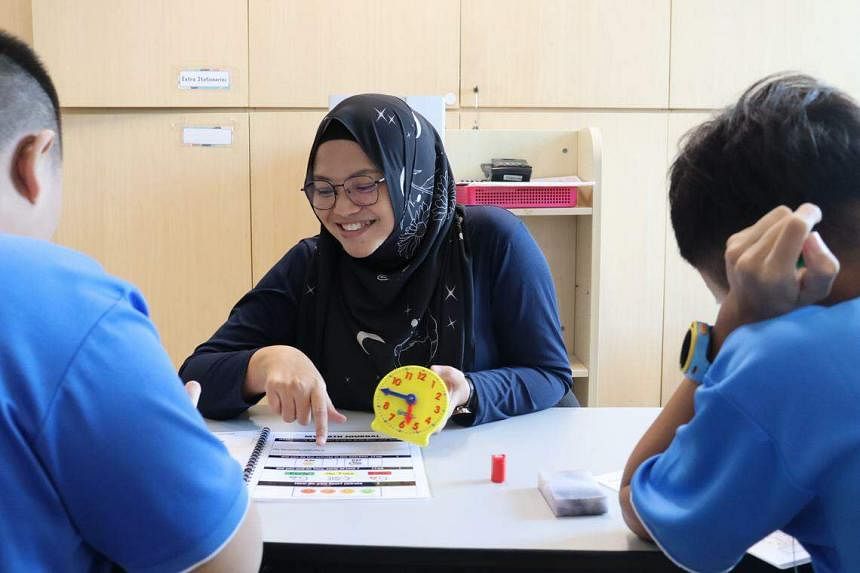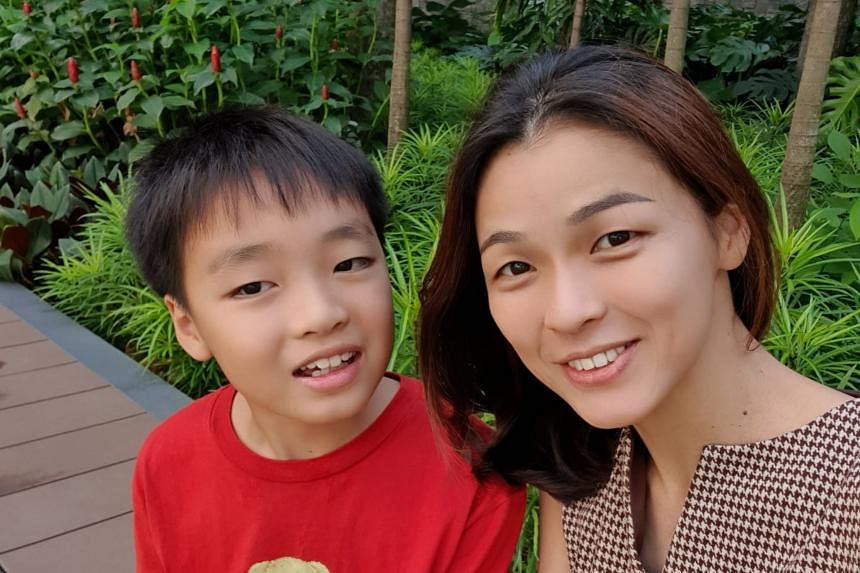SINGAPORE - Piano teacher Vanecia Er was at first puzzled, then increasingly anxious, when her three-year-old son had trouble forming words and speaking clearly.
It was only when his pre-school teachers suggested he get assessed at KK Women’s and Children’s Hospital that Ms Er found out the signs he displayed – delayed speech, difficulty interacting with his peers, repetitive behaviour like spinning objects – were tell-tale signs of autism.
Ms Er, 40, said she broke down on hearing the diagnosis.
Speaking to The Straits Times, she said: “When I received the news, I felt lost. I did not know much about autism, and had to keep wiping off the tears and control myself.”
But when she calmed down, she realised she at last had the answer to why Austen was struggling in pre-school and having difficulty communicating.
Austen is now 12. He has an eight-year-old sister who attends a mainstream school.
Ms Er said early diagnosis and intervention for autism helped in Austen’s development.
Psychologist James W. Partington, who helms the Autism Recovery Network with co-founder Dino Trakakis, said early diagnosis and intervention at a young age are key for people with autism.
The Autism Recovery Network (ARN), located in Joo Chiat, provides early intervention programmes in several Asian countries, including Singapore.
Said Dr Partington: “Many parents make the mistake of taking a wait-and-see attitude when they detect signs of autism.
“Often, they rush to send their children with autism to mainstream schools before their children finish acquiring the skills to learn successfully in that environment.”
Such an approach, he added, can be stressful and detrimental to the children.
Dr Partington said greater awareness of autism will help provide better services and support systems for people with autism.
That will also mean people on the autism spectrum can have equal opportunities to participate in society.
This is where special education schools can help, by imparting key skills to people with autism.
For instance, Rainbow Centre – the operator of three special education schools – focuses on communication and self-regulation skills, said a spokesman.
Students also learn to be independent in carrying out day-to-day activities.
Ms Siti Umairah, 30, who is an assistant senior teacher at Rainbow Centre Yishun Park, said: “Complex emotions and circumstances make it difficult for individuals on the autism spectrum to navigate daily life.
“It is our job as educators to help them break down and concretise these complex emotions for them to understand.”

Ms Er works closely with Austen’s school teachers to focus on his communication skills and teach him flexibility.
Ms Er said she was upset when she learnt her son could not attend a mainstream school after not meeting the required 70 points, which signalled intellectual disability.
Austen now attends a special school and learns the skills that he requires at a pace that is right for him.
Ms Er, who has 20 years of experience teaching piano, also began teaching her son to play the instrument when he was seven. She was astounded, she said, when Austen memorised up to eight pages of piano scores.
Now, he has a YouTube channel that documents his musical journey.
She said: “Introducing Austen to music, particularly learning piano, has significantly enhanced his learning experience. It helps him sit longer, focus better, enhance memory… and more.”
She added that playing piano duets with her son regularly has also improved his non-verbal communication skills.
There are challenges, she said, referring to his limited speech and rigid routine. There is also the occasional meltdown in public places like shopping malls, she added.
To mark World Autism Awareness Day on April 2, the Science Centre – in a tie-up with SG Enable, an agency that serves persons with autism, as well as those with physical, sensory, and intellectual disabilities – held activities for the public between March 28 and 31.
SG Enable chief executive officer Ku Geok Boon said: “In line with international trends, there continues to be an increase in the number of children diagnosed with autism in Singapore. Heightened awareness can bridge this gap by shedding light on the diverse experiences of persons with autism.”
More awareness about autism can also foster greater empathy and inclusion within society, she added.
Editor’s note: This story has been edited for clarity.


